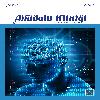Doktorlarda Mesleki Tükenmişlik Sendromuna Çalışma Yaşam Kalitesinin Etkisi
mesleki tükenmişlik, doktorlar, kadın doktorlar, depersonalizasyon
The Effect of The Quality Of Working On Professional Experience Syndrome In Doctors
Professional Burnout, Physicians, Women Physicians, Depersonalization,
___
- Referans 1- Bauer J, Häfner S, Kächele H, Wirsching M, Dahlbender RW. The burn-out syndrome and restoring mental health at the working place. Psychother Psychosom Med Psychol. 2003;53(5):213-22. Referans 2- Kobiakova OS, Deev OA, Kulikov ES, Khomiakov KV, Tiufilin DS, Zagromova TA, et al. The factors associated with development of Professional burning-out in physicians. Probl Sotsialnoi Gig Zdravookhranenniiai Istor Med. 2019;27(6):967-971. Referans 3- Rotenstein LS, Torre M, Ramos MA, Rosales RC, Guille C, Sen S, et al. Prevalence of Burnout Among Physicians: A Systematic Review. JAMA. 2018;320(11):1131-1150. Referans 4- Shanafelt TD, Hasan O, Dyrbye LN, Sinsky C, Satele D, Sloan J, et al. Changes in Burnout and Satisfaction With Work-Life Balance in Physicians and the General US Working Population Between 2011 and 2014. Mayo Clin Proc. 2015;90(12):1600-13. Referans 5- Dyrbye LN, West CP, Satele D, Boone S, Tan L, Sloan J, et al. Burnout among U.S. medical students, residents, and early career physicians relative to the general U.S. population. Acad Med. 2014;89(3):443-51. Referans 6- Unger JP. Physicians' Burnout (and That of Psychologists, Nurses, Magistrates, Researchers, and Professors) For a Control Program. Int J Health Serv. 2020;50(1):73-81. Referans 7- Süloğlu A. (2009) Diyaliz merkezlerinde çalışan doktor ve hemşirelerde tükenmişlik sendromu. Aile Hekimliği Uzmanlık Tezi. Bakırköy Dr. Sadi Konuk Eğitim ve Araştırma Hastanesi. İstanbul Referans 8- Maslach C, Jackson SE, Leiter MP, Schaufeli WB, Schwab RL. Maslach burnout inventory. Palo Alto, CA: Consulting psychologists press; 1986. Referans 9- Ergin C. Doktor ve hemşirelerde tükenmişlik ve Maslach tükenmişlik ölçeğinin uyarlanması. VII. Ulusal psikoloji kongresi bilimsel çalışmaları. 1992;22:25. Referans 10- Aydın İ, Çelik Y, Uğurluoğlu Ö. Sağlık Personeli Çalışma Yaşam Kalitesi Ölçeği: Geliştirilmesi, Geçerliliği Ve Güvenilirliği. Toplum ve Sosyal Hizmet. 2011;22(2):79-100. Referans 11- Embriaco N, Papazian L, Kentish-Barnes N, Pochard F, Azoulay E. Burnout syndrome among critical care healthcare workers. Curr Opin Crit Care. 2007;13(5):482-488. Referans 12- Brindley PG. Psychological burnout and the intensive care practitioner: A practical and candid review for those who care. J Intensive Care Soc. 2017;18(4):270-275. Referans 13- Stanetić K, Petrović V, Marković B, Stanetić B. The Presence of Stress, Burnout Syndrome and the Most Important Causes of Working Stress Among Physicians in Primary Health Care - an Observational Study from Banja Luka, Bosnia and Herzegovina. Acta Med Acad. 2019;48(2):159-166. Referans 14- Zgliczyńska M, Zgliczyński S, Ciebiera M, Kosińska-Kaczyńska K. Occupational Burnout Syndrome in Polish Physicians: A Systematic Review. Int J Environ Res Public Health. 2019;10:16(24). Referans 15- Purvanova RK, Muros JP. Gender differences in burnout: A meta-analysis. J. Vocat. Behav. 2010;77(2):168-85. Referans 16- Medscape National Physician Burnout, Depression and Suicide Report (2019) Accessed: 13 January 2020 Available: https://www.medscape.com/slideshow/2019-lifestyle-burnout-depression-6011056#20 Referans 17- LaFaver K, Miyasaki JM, Keran CM, Rheaume C, Gulya L, Levin KH, et al. Age and sex differences in burnout, career satisfaction, and well-being in US neurologists. Neurology. 2018;91(20):1928-1941. Referans 18- Marchalik D, Brems J, Rodriguez A, Lynch JH, Padmore J, Stamatakis L, et al. The Impact of Institutional Factors On Physician Burnout: A National Study of Urology Trainees. Urology. 2019;131:27–35. Referans 19- Boutou A, Pitsiou G, Sourla E, Kioumis I. Burnout syndrome among emergency medicine physicians: an update on its prevalence and risk factors. Eur Rev Med Pharmacol Sci. 2019;23(20):9058-9065 Referans 20- Goldberg R, Boss RW, Chan L, Goldberg J, Mallon WK, Moradzadeh D, et al. Burnout and its correlates in emergency physicians: four years' experience with a wellness booth. Acad Emerg Med. 1996;3(12):1156-64 Referans 21- Verougstraete D, Hachimi Idrissi S. The impact of burn-out on emergency physicians and emergency medicine residents: a systematic review. Acta Clin Belg. 2019;13:1-23. Referans 22- Bethea A, Samanta D, Kali M, Lucente FC, Richmond BK. The impact of burnout syndrome on practitioners working within rural healthcare systems. Am J Emerg Med. 2019;(19)30456-5. Referans 23- Dubale BW, Friedman LE, Chemali Z, Denninger JW, Mehta DH, Alem A, et al. Systematic review of burnout among healthcare providers in sub-Saharan Africa. BMC Public Health. 2019;19(1):1247. Referans 24- Alhaffar BA, Abbas G, Alhaffar AA. The prevalence of burnout syndrome among resident physicians in Syria. J Occup Med Toxicol. 2019;14:31. Referans 25- Hacer TY, Ali A. Burnout in physicians who are exposed to workplace violence. J Forensic Leg Med. 2019;69:101874. Referans 26- Saravanabavan L, Sivakumar MN, Hisham M. Stress and Burnout among Intensive Care Unit Healthcare Professionals in an Indian Tertiary Care Hospital. Indian J Crit Care Med. 2019;23(10):462-466. Referans 27- Travers V. Burnout in orthopedic surgeons. Orthop Traumatol Surg Res. 2019;1877-0568(19):30324 Referans 28- Orbay E, Tamer İ, Sargın M, Özçınar M, Dabak R. Asistan Doktorlarda Tükenme (Burnout) Sendromu. Türkiye Aile Hekimliği Dergisi. 2007;11(2):67-71.
- ISSN: 2149-5254
- Yayın Aralığı: 3
- Başlangıç: 1933
- Yayıncı: Hayat Sağlık ve Sosyal Hizmetler Vakfı
İlkim Çıtak Karakaya, Semiha Yenişehir, Veli Batur, Mehmet Gürhan Karakaya
Bolu ve Çevresinde Yaşayan Çocuklarda Labial Frenulum Tipleri ve Gingival Sağlığa Etkileri
Şevki Güler, Derya Güler, Umut Öğütücü
Oğuzhan METE, Şeyda TOPRAK ÇELENAY, Özge ÇOBAN, Nesrin KARAHAN
Selin YURDAKUL, Mustafa ÇAKIRCA, Ömer Faruk ÖZER, İskender EKİNCİ, Elif Ece DOĞAN, Cumali KARATOPRAK
Doktorlarda Mesleki Tükenmişlik Sendromuna Çalışma Yaşam Kalitesinin Etkisi
Burak METE, Mehmet DEĞER, Erkan PEHLİVAN
Migrenli Bireylerdeki Gastrointestinal Semptomların Ağrı Karakteristiği ve Özür Durumu İle İlişkisi
Nesrin KARAHAN, Özge ÇOBAN, Oğuzhan METE, Şeyda TOPRAK ÇELENAY
Karaciğer Metastazlı Kolorektal Kanserde Kişiselleştirilmiş Tedavi Sonuçları
Kursat R. SERİN, Muhammed Z. UCUNCU, Onder KARABAY, M. Kemal TEMEL, Adnan HACİM, Cem TERZİ
Hekim Lari, Fatih Sultan Mehmed'in Acem Hekimi
E-profesyonelizm Kavramı ve Sağlık Alanına Yansımaları
Doktorlarda Mesleki Tükenmişlik Sendromu ve Çalışma Yaşam Kalitesi Arasındaki İlişki
